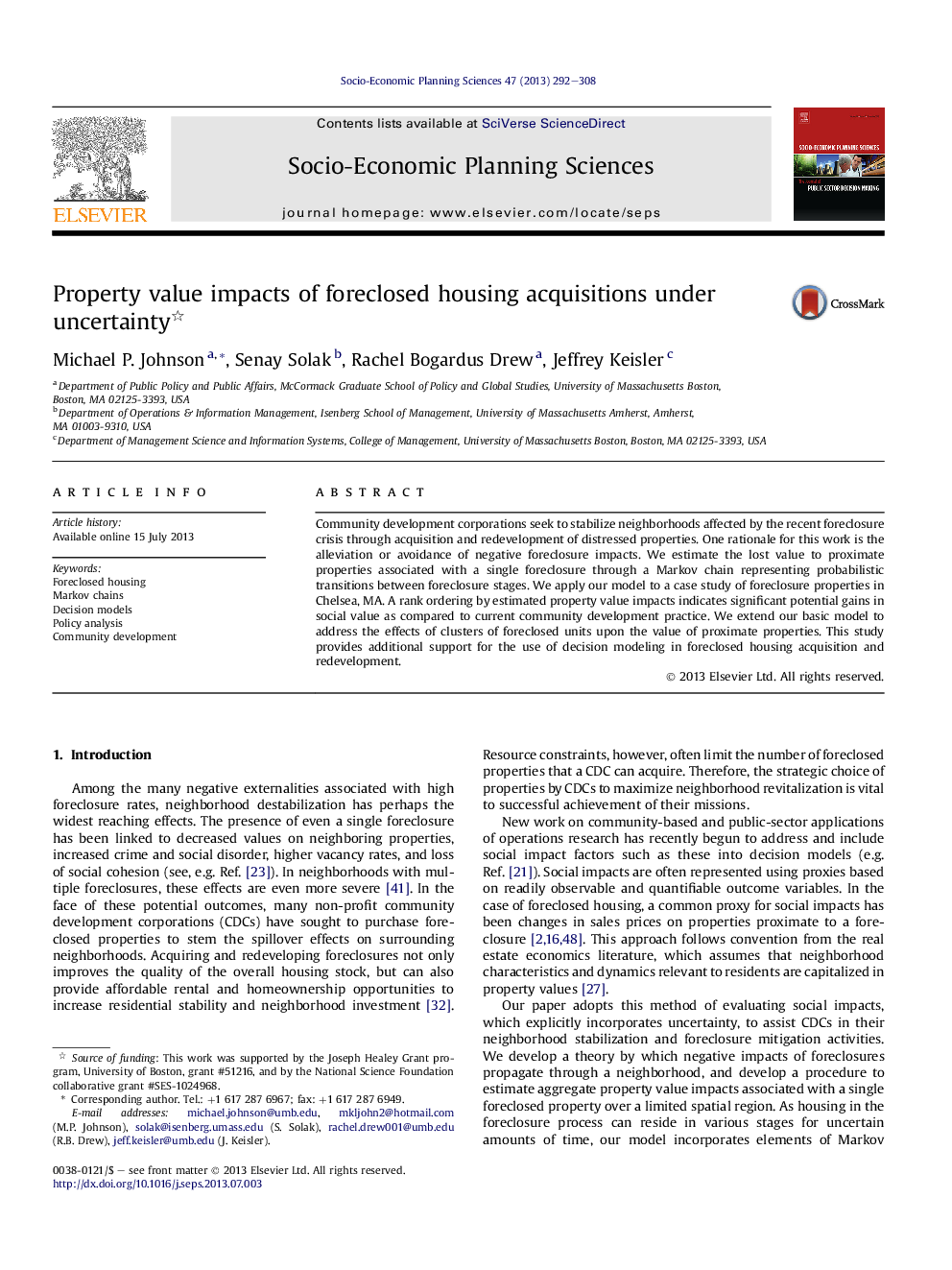| Article ID | Journal | Published Year | Pages | File Type |
|---|---|---|---|---|
| 987116 | Socio-Economic Planning Sciences | 2013 | 17 Pages |
•Community-based organizations acquire foreclosed housing to stabilize neighborhoods.•An important criterion is that of potential avoided property value losses.•We develop a Markov model to accommodate changes in foreclosure status over time.•We extend our model to address clustering of foreclosed units.•CBOs may enjoy efficiency gains by using analytic models to rank acquisition opportunities.
Community development corporations seek to stabilize neighborhoods affected by the recent foreclosure crisis through acquisition and redevelopment of distressed properties. One rationale for this work is the alleviation or avoidance of negative foreclosure impacts. We estimate the lost value to proximate properties associated with a single foreclosure through a Markov chain representing probabilistic transitions between foreclosure stages. We apply our model to a case study of foreclosure properties in Chelsea, MA. A rank ordering by estimated property value impacts indicates significant potential gains in social value as compared to current community development practice. We extend our basic model to address the effects of clusters of foreclosed units upon the value of proximate properties. This study provides additional support for the use of decision modeling in foreclosed housing acquisition and redevelopment.
